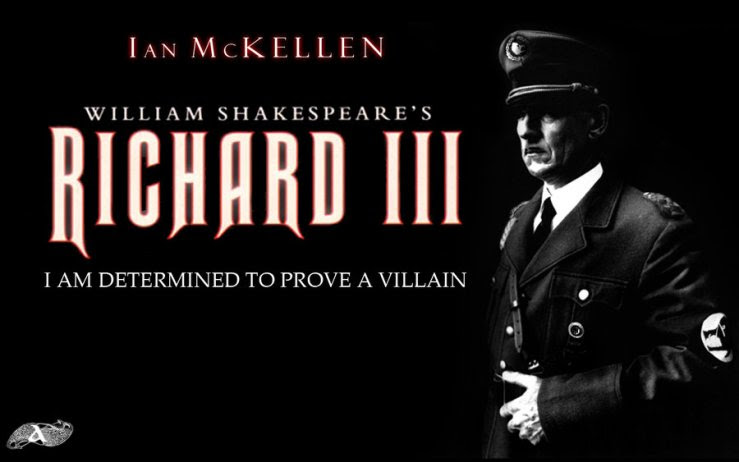University Programs Join Forces to Bring Shakespeare to Life


By Miriam Trujillo
The Philosophy department, the University Honors Program, and the Medieval Club collaborated to screen the 1995 film version of Shakespeare’s “Richard III,” on Monday night in McMahon Hall. This version stars Sir Ian McKellen as the amoral duke, desperate to be king. Well-known actors such as Maggie Smith as the Duchess of York, Annette Bening as Elizabeth Woodville, and Robert Downey Jr. as Elizabeth’s brother also appear. They play Richard’s family and associates, who are forced stand by and watch as Richard murders victim after victim, until he finally becomes king of England.
History professor, Jennifer Paxton, opened the event by giving the audience some historical context. She gave a brief overview of the War of the Roses, which surrounds Richard’s quest for power. She also presented some additional information on the study of King Richard III, including the theory that he was not as evil as he is portrayed to be in the play, and that Richard III’s body was found buried under a British parking lot in 2013.
When the film began, it quickly became clear to the students attending that this adaptation takes a lot of artistic liberties.
The film sets the story in a fictionalized, early twentieth-century England where the royals celebrate their victories with jazz music, fought their wars with tanks and planes, and Richard III’s regime is portrayed as a pseudo-fascist movement. This setting makes for a thought-provoking contrast between the glittering lives of the British nobility, and Richard III’s cruel murders which make up most of the action of the film. At the beginning, we see Richard III enjoying himself at a party, happily surrounded by his family. This makes the scene where Richard III hires assassins to kill his brother and two young nephews all the more gruesome.
The somber nature of the scene featuring the Duchess of York’s flight from England feels even more forlorn because she flies away in a literal airplane leaving everyone else behind in the grip of Richard’s reign of terror. The conspiracies of Richard and his henchmen take on a far more ominous tone when they are compared to the machinations of the Nazi and Fascist parties.
Unfortunately, this film version cuts some key scenes that prevent it from maintaining the same air of nuance and moral certainty as the Shakespeare play. For instance, the director made the decision to cut the mesmerizing scene in which the ghosts of Richard’s victims appear to haunt the tyrant on the eve of the play’s climactic battle. This scene is very successful in demonstrating how Richard’s actions have spiritual as well as political consequences. It is also clear to the audience that Richard has no chance of victory in the coming fight. With the ghost scene cut, the battle at the end of the film feels less like a fight between good and evil, and more like a generic action sequence that can be found in a movie with half of Richard III’s depth.
After the screening, philosophy professors, Jonathan Buttaci and Herbert Hartmann joined Paxton to give their thoughts about the film and answer students’ questions. This panel discussed subjects such as the pros and cons of how this film version condenses Shakespeare’s play, skipping most of the less dramatic moments, and going straight from one murder to the next.
“It’s just one evil thing after another,” said Hartmann.
“[It’s a] narrative coherence for an audience that doesn’t know the story.” added Paxton.
They also brought up the rise and fall of Richard’s influence on the people around him, and how that dynamic adds to the drama of the story.
“One of the bizarre things [about the story] are how tolerant his courtiers. . . are to his corruption.” Said Hartmann. It takes a total of seven deaths before forces finally assemble and stop Richard in his tracks. Then, finally, Richard’s power starts to weaken.
“He is no longer able to accurately judge the grip he has on people”, said Paxton.
In the end, Richard III dies, alone, in battle. England is left to pick up the pieces and build a new dynasty of rulers. The different perspectives and critical analyses offered by professors from various disciplines made this momentous event in England’s history come to life for the Catholic University audience.







